
81 QUESTIONS FOR PARENTS
Published by Rowman & Littlefield
An imprint of The Rowman & Littlefield Publishing Group, Inc.
4501 Forbes Boulevard, Suite 200, Lanham, Maryland 20706
www.rowman.com
6 Tinworth Street, London, SE11 5AL, United Kingdom
Copyright 2021 by Kristen J. Amundson
All rights reserved. No part of this book may be reproduced in any form or by any electronic or mechanical means, including information storage and retrieval systems, without written permission from the publisher, except by a reviewer who may quote passages in a review.
British Library Cataloguing in Publication Information Available
Library of Congress Cataloging-in-Publication Data
Names: Amundson, Kristen J., author.
Title: 81 questions for parents : helping your kids succeed in school / Kristen J. Amundson.
Other titles: Eighty one questions for parents
Description: Lanham : Rowman & Littlefield, [2021] | Includes bibliographical references. | Summary: This book provides answers to parents everyday questions regarding school.Provided by publisher.
Identifiers: LCCN 2020049969 (print) | LCCN 2020049970 (ebook) | ISBN 9781475859348 (cloth) | ISBN 9781475859355 (epub)
Subjects: LCSH: EducationParent participation.
Classification: LCC LB1048.5 .A47 2021 (print) | LCC LB1048.5 (ebook) | DDC 372.119/2dc23
LC record available at https://lccn.loc.gov/2020049969
LC ebook record available at https://lccn.loc.gov/2020049970
 The paper used in this publication meets the minimum requirements of American National Standard for Information SciencesPermanence of Paper for Printed Library Materials, ANSI/NISO Z39.48-1992.
The paper used in this publication meets the minimum requirements of American National Standard for Information SciencesPermanence of Paper for Printed Library Materials, ANSI/NISO Z39.48-1992.
To parents everywhere:
your job was hard even before the global pandemic!
CONTENTS
Guide
I t seems appropriate somehow to talk about a book on parenting by discussing its gestation period, which was long. During the many years that I thought about writing about parents and schools, I was also seeing and living the parentschool relationship from both sides. It took a global pandemic to give me the time and space to sit down and get all those fleeting thoughts and observations on paper.
The late John Wherry, founder of the Parent Institute, started me on the path to writing about parents and schools. His unwavering belief that kids learn best when parents and schools work together has guided my work ever since.
Tom Koerner and everyone at Rowman & Littlefield have been so generous in giving me the opportunity to write about what I have learned over the years. Im grateful for our partnership.
Thanks to everyone who so shared their time and their insights in interviews. Lindsay Arnold, Lindsay Dworkin, Stacey Finkel, Elena Guarinello, Paige Kowalski, Renee Lang, Lynn Mitchell, Eleanor Saslaw, and Eric and Janet Soller, your experiences will help make the hard work of parenting a little easier.
An earlier version of this book was tentatively titled How Band Can Get Your Kid Into Harvard and would have highlighted the Kids of Note program described in . I am so proud of all the students in that programJonathan and Genesis Amaya, Oscar Castro-Paz, Astrid Garcia, Camilo Rodriguez, and John Rey and Justin Tangaran. And of course I owe a huge debt of gratitude to Kristi Thomas, whose Teacher of the Year Award was richly deserved and whose dedication to kids seemingly knows no limits.
My sister Sue Ellingsen and my godson Andrew Ellingsen were much more than just expert sources for the book. They were supporters and cheerleaders and providers of great wisdom.
Some portions of this book appeared in my other parenting publications, including Getting Your Child Ready for Kindergarten and Kids Dont Come With Instruction Manuals.
I am grateful to my daughter Sara, who was basically my living experiment in parenting and has only rarely reminded me of the times I fell short of the mark. Being Saras mother has been the greatest and most rewarding adventure of my life. (I owe her special thanks for the early edits and occasional reminders that I just had to quit whining and start writing.)
But most of all I want to thank all the parents over the years who trusted me to make policy affecting their children, who read my parenting advice and told me it was helpful, and who showed me in their interactions with their childrens schools that we truly can make education better for all kids.
T his is not exactly the book I planned to write. For years, Id thought about writing a book addressed to the desperate parents who were terrified that their high school senior would not get accepted into any college and would end up living in their basement. They started worrying in kindergartenshould they hold their child out for a year? They worried through elementary schoolcould they ever ask for a specific teacher? They worried in middle school, but of course every parent worries through middle school. And then all that angst and agita just exploded when their child reached high school.
I figured I had a story to tell. Im a former teacher who spent nearly a decade on the school board of one of the nations finest public school systemsFairfax County, Virginia. Even more important than those professional qualifications, Im the parent of a child who did receive fat envelopes from some of the nations most selective colleges and universities, including Princeton, from which she graduated. I also helped students from a wide range of backgrounds, including immigrants whose parents never completed middle school, successfully apply to excellent colleges where they received significant financial aid.
Over the years, parents stopped me on the street (or in the grocery store or evenas God is my witnessin the communion line) to ask questions. Did their kid need to take algebra in eighth grade (yes). Was it a problem that they werent reading at the start of first grade (no). Was it a problem that they still werent reading in third grade (yes).
But probably the most common question I got over the years was, What can we do to help our child in this increasingly competitive environment? I always gave parents the same answer.
Band, Id tell them. Enroll your child in the band.
Year after year, I shared this adviceand other hard-earned lessons about how to get the very best education for your child in any school in the countrywith frantic parents. Often, these parents told me, You really ought to write a book.
Then two things changed the whole shape of what I was writing. First, the Varsity Blues scandal exposed the steps affluent parents were willing to take to get their kids accepted into a selective university. I knew I didnt want to write anything that would fuel even more pressure to adopt that insane (and as it turned out, felonious) behavior. But I knew parents were still struggling to help their high school senior findand be accepted atthe right college.
And then, of course, there was COVID-19. In the spring of 2020, parents across the United States found themselves quarantined with kids who suddenly had to start going to school online. Parents who were themselves trying to figure out how to log onto a Zoom meeting found themselves also trying to help one child with long division and another with the life cycle of a butterfly. The results, as we all know, were not good. The Tennessee Department of Education estimated that instead of a normal summer learning loss, the states students were likely to lose as much as a full year of instruction between when schools closed in March of 2020 and September of the following year. Tennessee is likely to be the canary in the coal mine, and COVID-related learning losses are probably going to last for years.
Next page

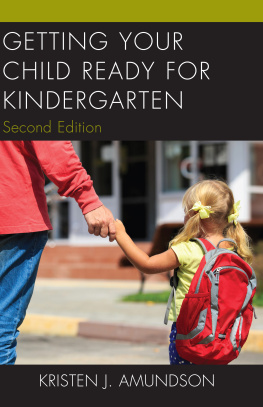
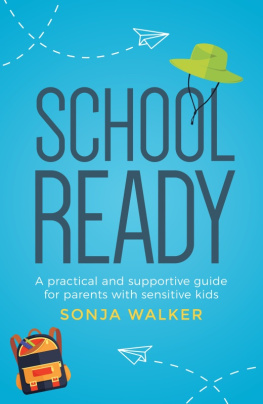
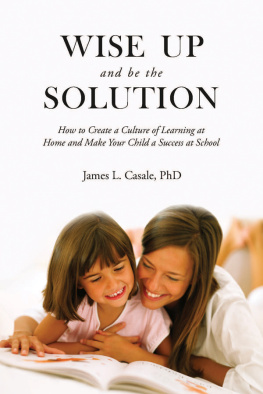
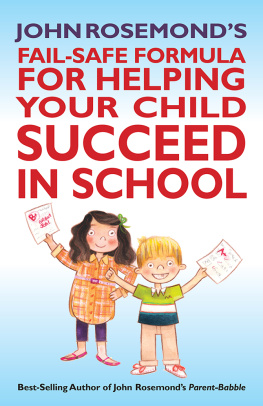
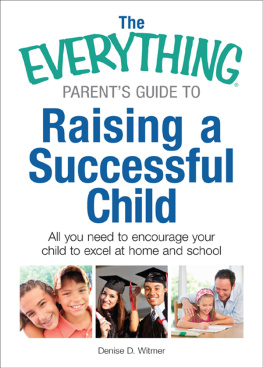
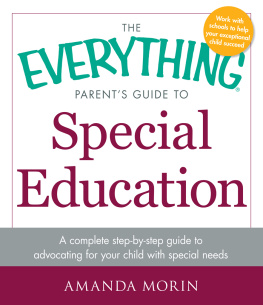
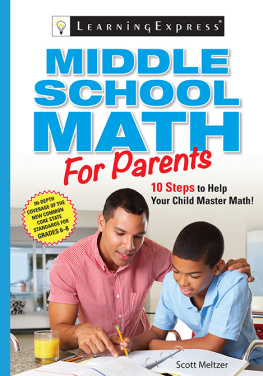
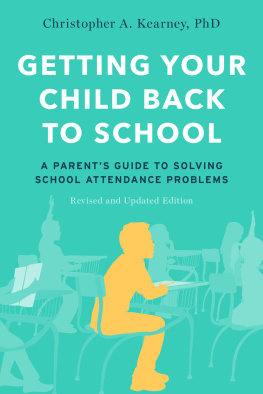


 The paper used in this publication meets the minimum requirements of American National Standard for Information SciencesPermanence of Paper for Printed Library Materials, ANSI/NISO Z39.48-1992.
The paper used in this publication meets the minimum requirements of American National Standard for Information SciencesPermanence of Paper for Printed Library Materials, ANSI/NISO Z39.48-1992.